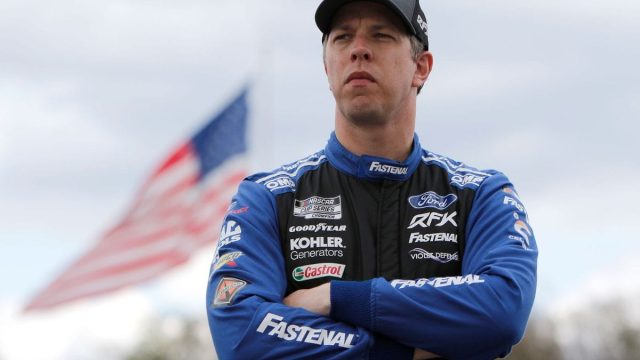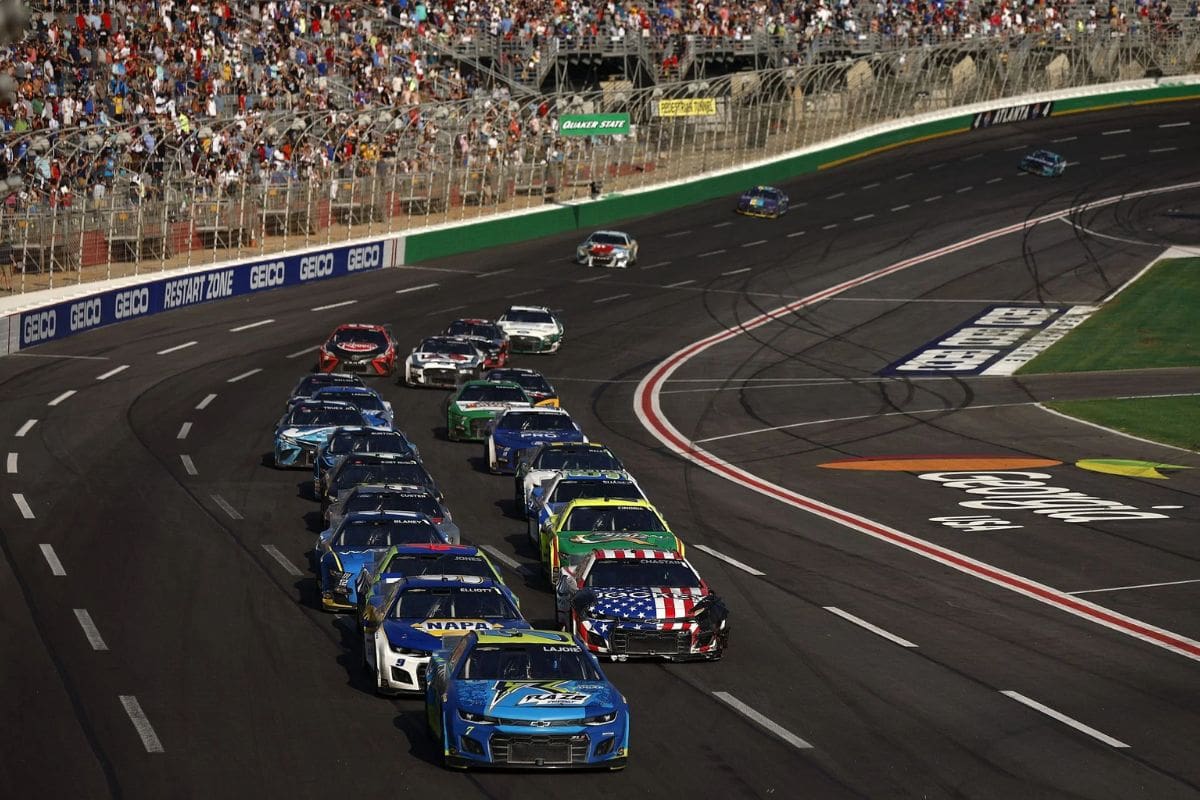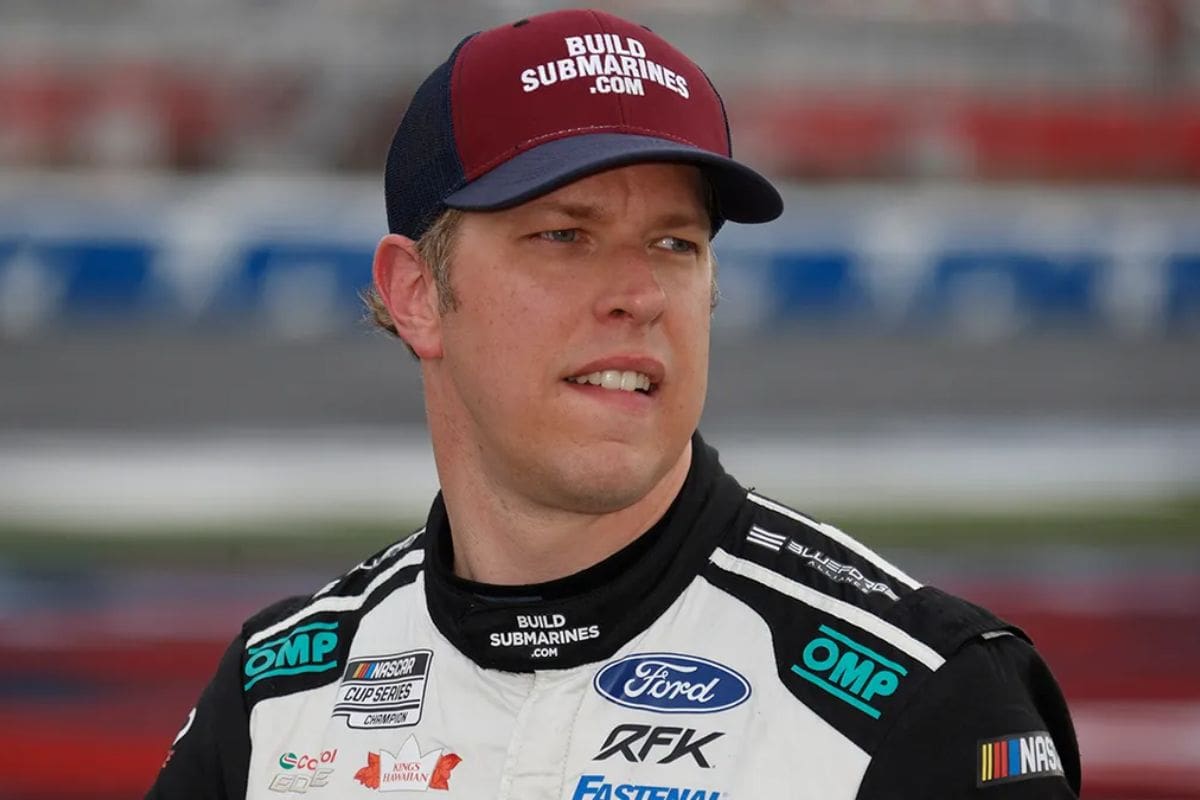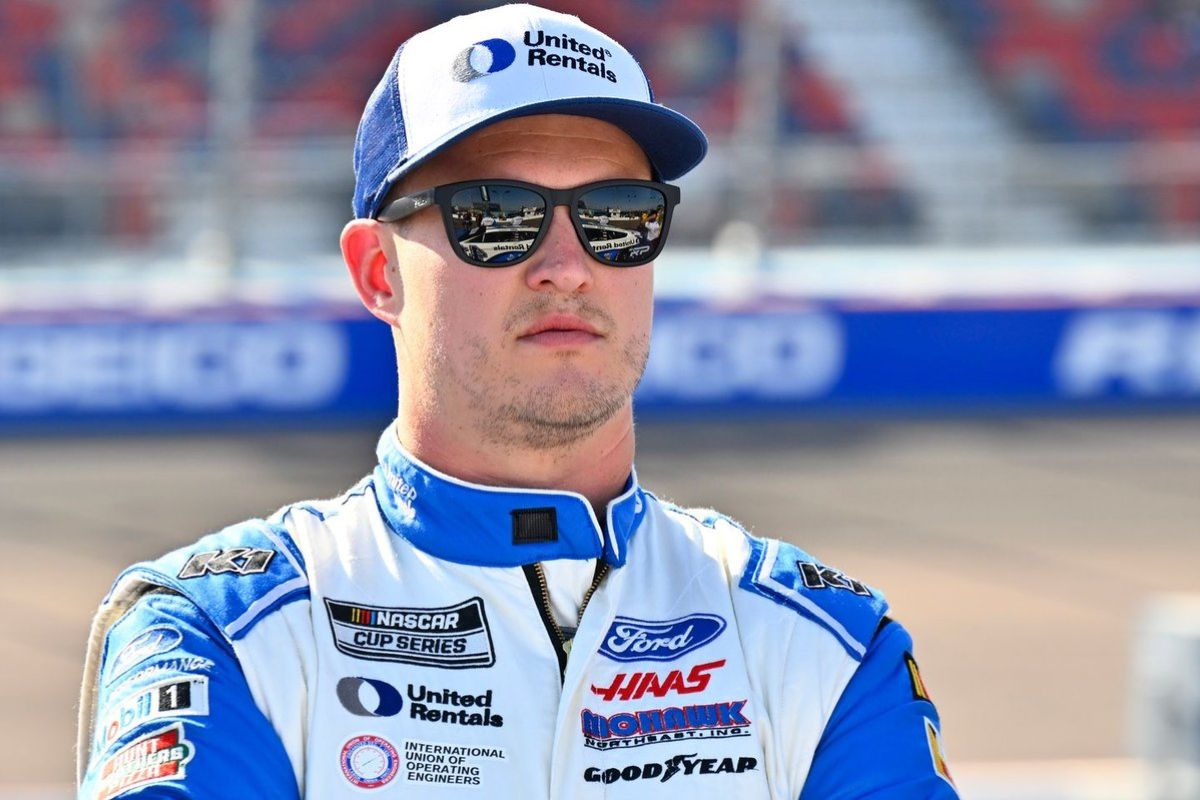Brad Keselowski’s 20 Million Dollar Expansion Faces Unexpected Delay: Brad Keselowski‘s $20 million expansion for RFK Racing is currently hindered by unforeseen logistical challenges and resource allocation issues, raising questions about the feasibility of their ambitious timeline to shift to a trio-car operation by 2025. As the team grapples with these setbacks, the implications for their budget and competitive positioning within NASCAR become increasingly important. With the intricacies of integrating a third vehicle in a high-pressure environment, the tactical decisions made now could either enhance or jeopardize their future. What factors are most critical in maneuvering these complexities?
Key Highlights
- RFK Racing’s expansion plan, led by Brad Keselowski, faces delays due to logistical challenges and personnel needs.
- Unexpected setbacks have impacted the timeline and budget for the $20 million expansion initiative.
- The team is carefully evaluating charter market conditions amidst financial implications from SHR’s charter changes.
- Historical difficulties in team expansions emphasize the need for meticulous planning before adding a third car.
- Competition pressure from rival teams adds urgency, complicating resource allocation and strategic adjustments for RFK Racing.
Teams Expanding After SHR Departure
As teams navigate the shifting landscape of NASCAR following Stewart Haas Racing‘s departure, the urgency to secure charters has intensified among several organizations. The departure has triggered a competitive scramble, with teams such as Trackhouse Racing and 23XI Racing initially perceived as frontrunners.
However, the dynamics have evolved, as newer entities like Haas Factory Team and Front Row Motorsports have emerged, each aggressively pursuing charters.
Front Row Motorsports has been particularly proactive, positioning itself to capitalize on the opportunity created by SHR’s exit. Meanwhile, Haas Factory Team has also entered the fray, indicating a resolve to establish a presence in the NASCAR circuit. These developments reflect a broader trend of expansion as teams seek to improve their competitive edge.
Moreover, Justin Marks has signaled intentions for Trackhouse Racing to convert into a three-car operation by 2025, further emphasizing the trend of growth within the series.
However, the path to expansion is fraught with challenges, particularly as Brad Keselowski and RFK Racing have encountered a deadlock in negotiations with NASCAR over the extension of the charter deal, which is set to expire at the end of the current year. This impasse has created uncertainty, hindering RFK’s ambitions to strengthen their lineup.
RFK Racing’s Expansion Plans
RFK Racing frequently investigates opportunities for growth, with Team President Steve Newmark expressing a strong interest in expanding to a three-car setup by 2025. This initiative reflects a tactical response to the evolving dynamics of the NASCAR landscape, where increased competition has necessitated a robust presence on the track. Newmark’s vision is grounded in the belief that a three-car operation can improve both performance and brand visibility, ultimately leading to a more sustainable and competitive team.
“So we started exploring how we could expand to a third car. We made progress to that, and I’m very hopeful that we’ll have a third car next year. But there’s a lot of different pieces of the puzzle to put in place, and the charter system is one of them. I mean, that’s a huge piece that you need to understand before you can make that commitment.” – Newmark
However, the pathway to this expansion is fraught with challenges. Newmark’s optimism is tempered by the recognition of potential roadblocks that could impede their ambitious plans. These obstacles may include logistical hurdles, the need for extra personnel, and the intricacies of securing necessary resources and technology to support a third vehicle.
Additionally, the competitive nature of NASCAR means that RFK Racing must not only focus on operational expansion but also on ensuring that the new car is competitive from the outset.
As RFK Racing navigates this complex landscape, the integration of a third car will require meticulous planning and execution. The team’s strategies must be aligned with comprehensive organizational goals, ensuring that growth does not come at the expense of performance.
View this post on Instagram
With the right approach and a clear focus on overcoming these challenges, RFK Racing could successfully position itself as a formidable competitor in the NASCAR series, capitalizing on the opportunities that a three-car setup presents.
Financial Considerations and Charter Agreement
Frequently, financial considerations play a vital role in the expansion plans of racing teams, particularly concerning charter agreements. The current state of the charter market presents a complex landscape for teams like RFK Racing, led by Brad Keselowski and Jack Roush. Recent reports indicate that charters from SHR have been valued at approximately $20-25 million, a notable decline from the $40 million that Spire Motorsports paid to Livefast Motorsports for a tertiary car last year.
This price drop may appear advantageous; however, it does not compel RFK Racing to act hastily. The impending changes to the charter system, anticipated in 2025, introduce an extra layer of uncertainty that must be navigated. Steve Newmark, an insider at RFK Racing, articulated the need for a thorough understanding of the charter system before proceeding with their expansion plans.
The financial implications of securing a charter extend beyond the initial purchase price, including operational costs, sponsorship dynamics, and potential revenue streams. Therefore, while the lower price range may seem appealing, the lack of clarity regarding future agreements could lead to unforeseen liabilities and challenges.
Consequently, RFK Racing’s tactical approach involves evaluating the broader financial ramifications of entering the charter market at this point. By carefully weighing their options and waiting for clearer guidance on the charter agreements, Keselowski and Roush aim to position their team for sustainable growth rather than engaging in a rushed decision that may jeopardize long-term success.
Lessons from Past Expansions
Numerous racing teams have encountered considerable challenges when pursuing aggressive expansion tactics, often leading to setbacks rather than improved performance on the track. The ownership group at RFK Racing recognizes this reality, acknowledging that rapid growth can result in unfavorable outcomes. As Newmark articulated, “if you expand too quickly, sometimes the growing pains can send you backwards.” This sentiment reflects the caution exercised by seasoned professionals who have witnessed firsthand the pitfalls of expansion.
“I think we’ve seen some lessons around out there, that if you expand too quickly, sometimes the growing pains can send you backwards. We felt like we needed to establish our two-car program as a lead and one that we thought that can go out and win every single time we showed up at the racetrack.” – Newmark
Historically, teams like Phoenix Racing and Red Bull Racing have folded after ambitious growth attempts, serving as cautionary tales. Jack Roush, who once managed a five-car operation, exemplifies the complexities involved in scaling a racing team. Understanding these lessons is paramount for RFK Racing as they consider their own expansion.
The experiences of these teams highlight the necessity for RFK Racing to establish a robust foundation before venturing into an expansion phase. The intent to solidify their two-car program as a competitive force reflects a calculated approach aimed at ensuring sustainable success. Ultimately, the lessons learned from past expansions will guide RFK Racing in making informed decisions as they navigate their future growth path.
Speculation Around Ryan Preece’s Future
As speculation intensifies regarding Ryan Preece‘s future in NASCAR, the potential for him to join RFK Racing as a driver for a secondary full-time team appears increasingly plausible.
The dynamics surrounding Preece’s career are complicated by his current situation at Stewart-Haas Racing (SHR), where he is the only driver yet to secure a ride for the upcoming season. His mediocre performance in the Cup Series, combined with a lack of notable sponsorship, has further complicated his prospects.
However, the potential shift of Kroger, JTG Daugherty Racing‘s primary sponsor, to RFK Racing in 2025 could create an opening for Preece. According to insider reports, RFK Racing is poised to expand to three full-time teams, a move that would likely integrate Kroger as a major sponsor and Preece as a driver.
“RFK Racing is progressing toward expanding to three full-time teams in 2025, a move that would likely include bringing aboard big-ticket sponsor Kroger as a team-wide sponsor and signing driver Ryan Preece, sources briefed on the move told @TheAthletic.” – Jordan Bianchi
This tactical partnership can improve Preece’s visibility and competitiveness, aligning him with a team that is actively pursuing growth.
Brad Keselowski’s light-hearted yet ambiguous remarks about the future of a secondary car have only fueled the speculation. His comment, “Everything is in the sphere of possible,” suggests that discussions are ongoing, with decisions hinging on charter extension negotiations with NASCAR.
As this situation evolves, the interplay of sponsorship dynamics and driver placements will be critical. For Preece, this potential opportunity at RFK Racing could serve as a crucial moment in his career, transforming the path of his NASCAR expedition.
News in Brief: Brad Keselowski’s 20 Million Dollar Expansion Faces Unexpected Delay
The unforeseen delays in Brad Keselowski’s $20 million expansion plan for RFK Racing highlight the complexities inherent in shifting to a three-car setup. Logistical challenges and resource allocation issues threaten to disrupt the timeline and budget forecasts vital for successful integration. As the team navigates these obstacles, careful planning and tactical foresight will be imperative for enhancing performance and brand visibility. Ultimately, the outcome of this expansion will serve as a significant case study for future endeavors within the racing industry.
ALSO READ: Brad Keselowski Talks Playoff Pressure: How It Changes the Game at RFK Racing



